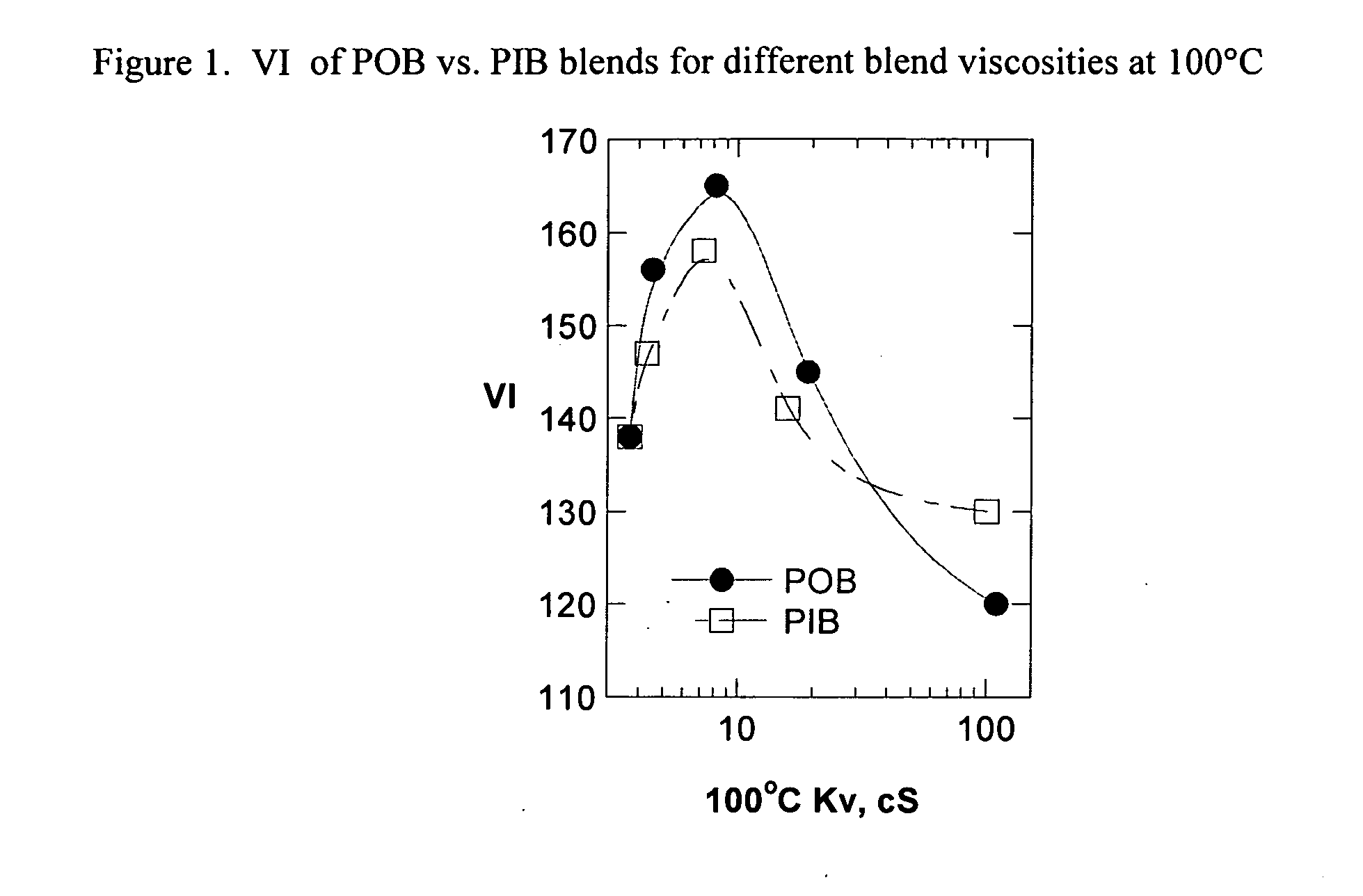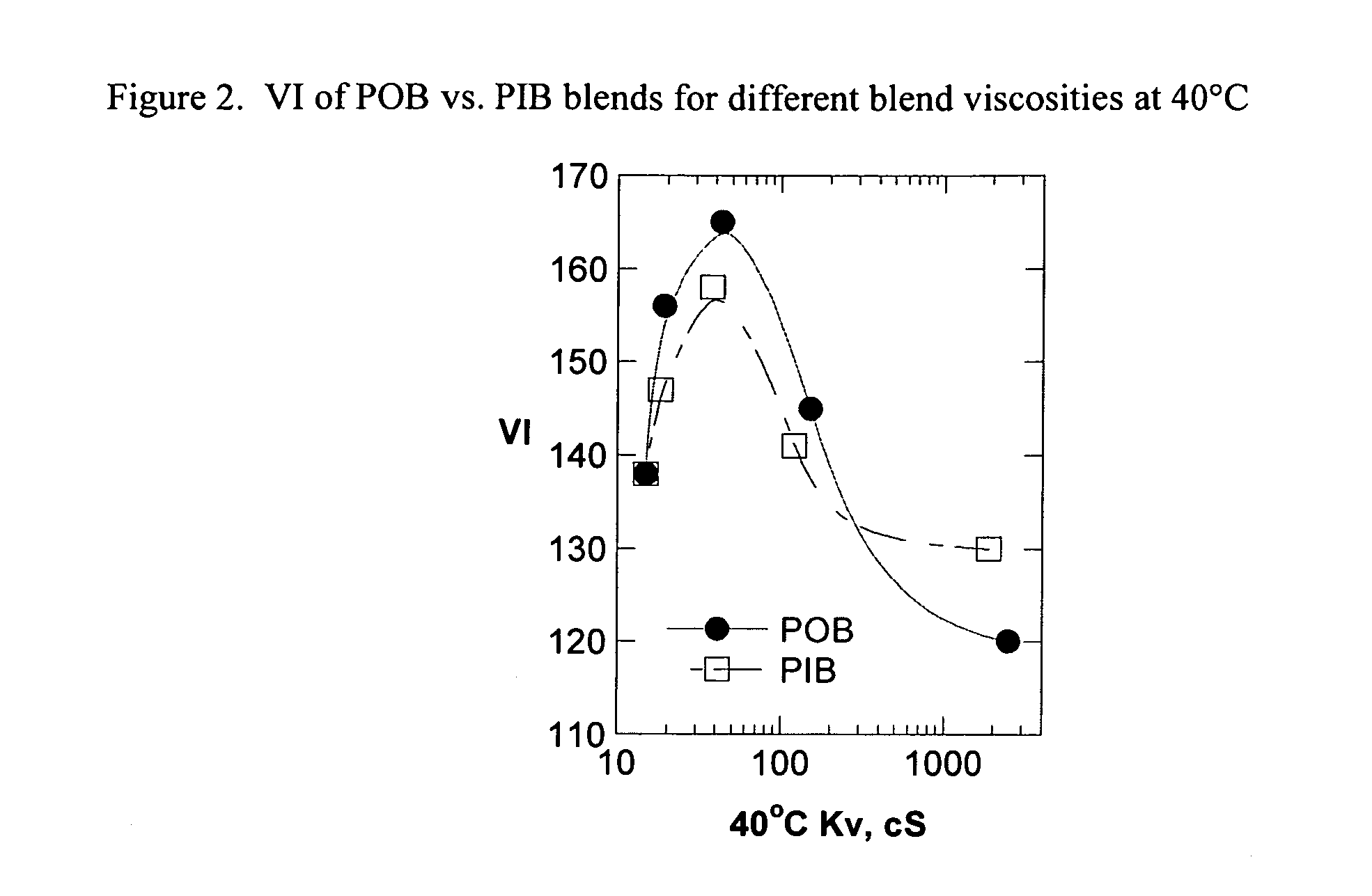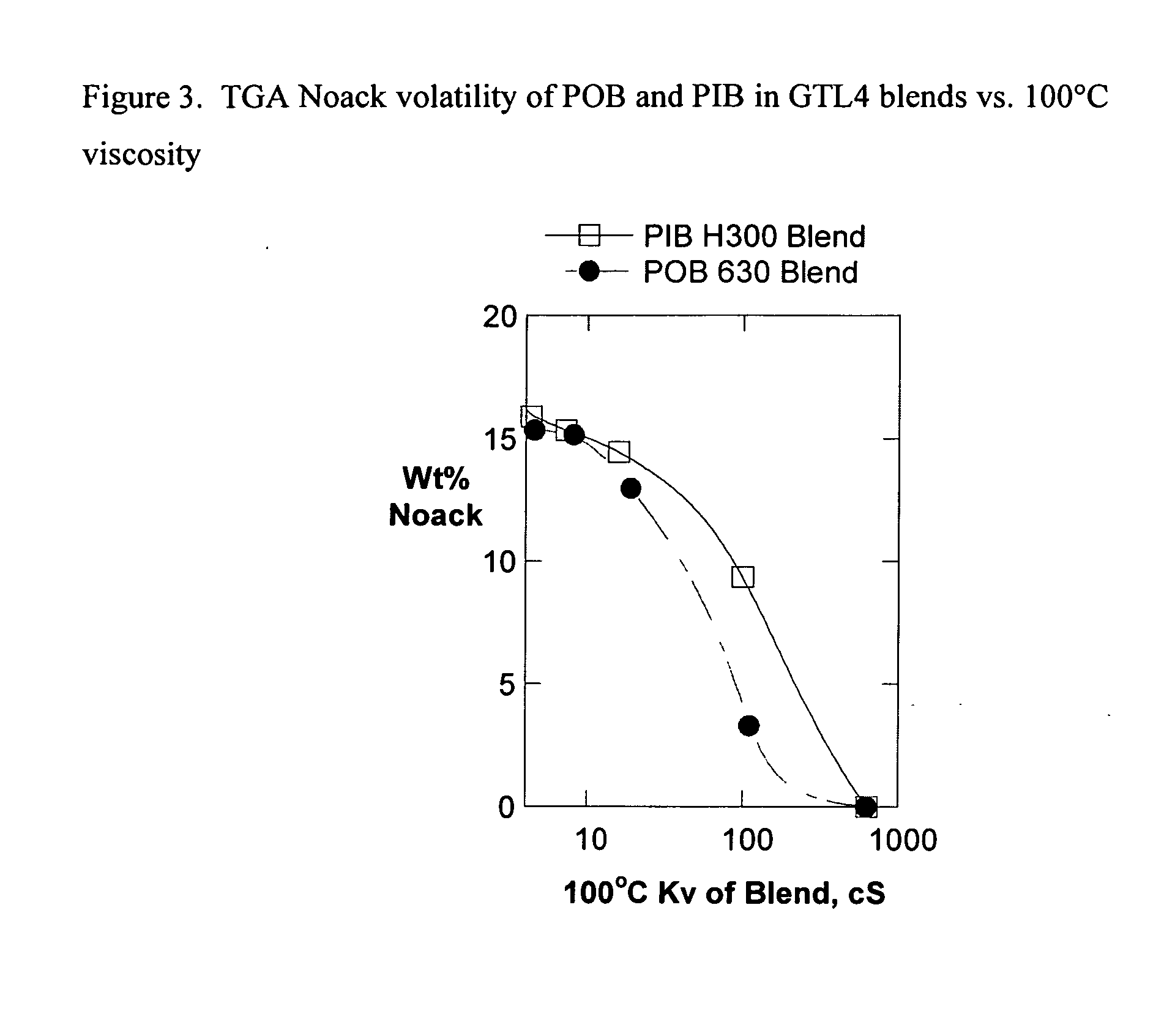Base stocks and lubricant blends containing poly-alpha olefins
a technology of polyalpha olefins and base stocks, applied in the field of polyalpha olefins, can solve the problems of decreasing the supply of bright stock stocks, hydro-processes are believed not to be suitable for producing high-viscosity base stocks, and the performance requirements of lubricants are becoming increasingly stringent, so as to achieve the effect of low viscosity
- Summary
- Abstract
- Description
- Claims
- Application Information
AI Technical Summary
Benefits of technology
Problems solved by technology
Method used
Image
Examples
examples
Test Methods
[0274]Fluid properties were measured by following standard methods and their commonly recognized equivalent methods, except when described otherwise: kinematic viscosity at 40 and 100° C. in cSt by ASTM D 445 method; pour point by ASTM D 97 method; and viscosity index (VI) according to ASTM D 2270.
[0275]TGA Noack volatility was measured according to the following procedures summarized below:
[0276]A HTE volatility test was developed using thermogravimetric analysis (TGA) equipment. The test procedure comprises several stage heating and a final isothermal period at or near 250° C. to mimic Noack volatility test (ASTM D5800). The actual TGA test time per sample is kept at 15 minutes or less. With rapid cooling and equilibrium, the total test run time per sample is less than 33 minutes. The use of autosampler (carousel to handle multiple samples, e.g., from 16 up to 64 samples) is highly desirable. TGA is known to correlate to Noack volatility measurements as described in AS...
PUM
| Property | Measurement | Unit |
|---|---|---|
| Temperature | aaaaa | aaaaa |
| Percent by mass | aaaaa | aaaaa |
| Kinematic viscosity | aaaaa | aaaaa |
Abstract
Description
Claims
Application Information
 Login to View More
Login to View More - R&D
- Intellectual Property
- Life Sciences
- Materials
- Tech Scout
- Unparalleled Data Quality
- Higher Quality Content
- 60% Fewer Hallucinations
Browse by: Latest US Patents, China's latest patents, Technical Efficacy Thesaurus, Application Domain, Technology Topic, Popular Technical Reports.
© 2025 PatSnap. All rights reserved.Legal|Privacy policy|Modern Slavery Act Transparency Statement|Sitemap|About US| Contact US: help@patsnap.com



